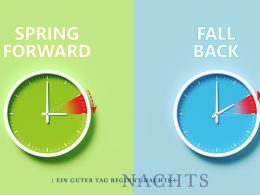A healthy amount of rest is important for us, our bodies and healthy sleep. The strain, stress and hectic pace of our everyday and professional lives sap our nerves and strength and don’t always allow us to relax quickly and easily. Without sufficient recovery and regeneration phases, however, our inner batteries run empty and our performance decreases. We are tense and stressed, which not only affects our mood, but can also impair the quality of our sleep. If our nightly regeneration during sleep is disrupted, this can in turn affect how well we can cope with the demands and stress of everyday life and work. A vicious circle that needs to be broken.
In this article, we would like to introduce you to effective relaxation exercises that will help you to relax and fall asleep better.
1. Relaxation exercise: Be mindful of yourself
A good relaxation exercise is to pay attention to your personal needs at an early stage. And before you are at the end of your tether: consciously take breaks and relax, don’t rush and don’t let stress build up. Take a deep breath and lean back.
For many people, creating a balance between tension and relaxation, being mindful of themselves and building small oases of relaxation into their everyday life and work are the key to a healthy, happy, productive self and restful sleep.
2. Relaxation exercise: find the optimal balance between tension and relaxation through rituals
Regular evening rituals can help you find your inner balance again. Relaxation exercises such as autogenic training to help you fall asleep, meditation or yoga can be helpful. Some people also find it helpful to realise in everyday life which often small and, at first glance, inconspicuous moments they can draw strength from – be it doing sport, playing the piano, gardening or spending time with their partner or children.
3. Relaxation exercise: find the optimal balance between tension and relaxation through rituals
Regular evening rituals can help you find your inner balance again. Relaxation exercises such as autogenic training to help you fall asleep, meditation or yoga can be helpful. Some people also find it helpful to realise in everyday life which often small and, at first glance, inconspicuous moments can give them strength – be it doing sport, playing the piano, gardening or spending time with their partner or children.
4. Relaxation exercise: get in touch with your body before falling asleep
Strengthening your own awareness of yourself and your body and recognising when tension and stress are getting out of hand can be another step towards more relaxation and regeneration before falling asleep. Physical signs such as tense shoulders, clenching your teeth, faster breathing and possibly even a racing heart can indicate constant inner tension. If you recognise such signs in yourself, you can consciously take countermeasures and do something good for yourself and your body before you fall asleep.
Relaxation exercises for advanced practitioners
The aim of relaxation exercises is to put the body into a state of regeneration. They can be used to help you fall asleep, but not all of these techniques directly make you tired. Rather, they help to reduce the body’s general level of activation and thus indirectly improve the quality of sleep. They can also help to stop the carousel of thoughts that robs many people of sleep at night.
It is worth learning relaxation exercises in a guided course and then practising them daily to achieve optimum results and the best possible regeneration.
5. Relaxation exercise: Imaginative techniques help us relax as we fall asleep
Imaginative techniques involve mentally transporting yourself into a particularly pleasant and relaxing situation, for example with the help of a resting image. When used correctly, the resting image is also suitable for travelling or as a first aid measure in particularly stressful moments. Negative feelings and behaviours can be gradually changed through imaginative processes.
6. Relaxation exercise: Progressive muscle relaxation for a relaxed sleep
The American doctor Edmund Jacobson developed the technique of progressive muscle relaxation at the beginning of the 20th century. By tensing and relaxing various muscle groups – such as the shoulders, legs or hands – a state of general relaxation is created. The various exercises of progressive muscle relaxation are also particularly suitable for optimal relaxation when falling asleep.
7. Relaxation exercise: Fall asleep better with meditation and yoga
Meditation can help you achieve deep inner peace. At the centre of meditative exercises is the deliberate directing of attention and the expansion of consciousness. Meditation can look very different. For example, there are meditation techniques that involve practising and directing concentration: on breathing, on certain areas of the body, on sounds or objects. If you are looking for suitable relaxation exercises, we recommend sleep meditation. There are also numerous meditative elements in yoga that can be used to relax through various physical and breathing exercises before falling asleep.
8. Relaxation exercise: Learning to relax through autogenic training
Autogenic training is one of the classic relaxation exercises and works with the power of self-suggestion. You give yourself instructions and allow yourself to be suggestively influenced by them. Autogenic training teaches you to calm and relax yourself and thereby gain more confidence in your own abilities. As the technique is also helpful for sleep problems, autogenic training is particularly suitable for falling asleep.
9. Relaxation exercise: stress management through mindfulness
The therapy form of “mindful-based stress reduction” (MBSR) was originally developed as an accompanying treatment for chronic illnesses, but is now also being used more and more in the prevention of stress-related illnesses. Mindfulness-based stress reduction includes numerous exercises that can be used in everyday activities and can also be used to relax and fall asleep.
For more information about falling asleep and relaxing, we also recommend the following articles:
• The best tips for falling asleep from a sleep expert – read more
• Fall asleep better … find peace of mind & body – read more
• Sleep aids and home remedies to help you sleep through the night – this really helps! – read more














